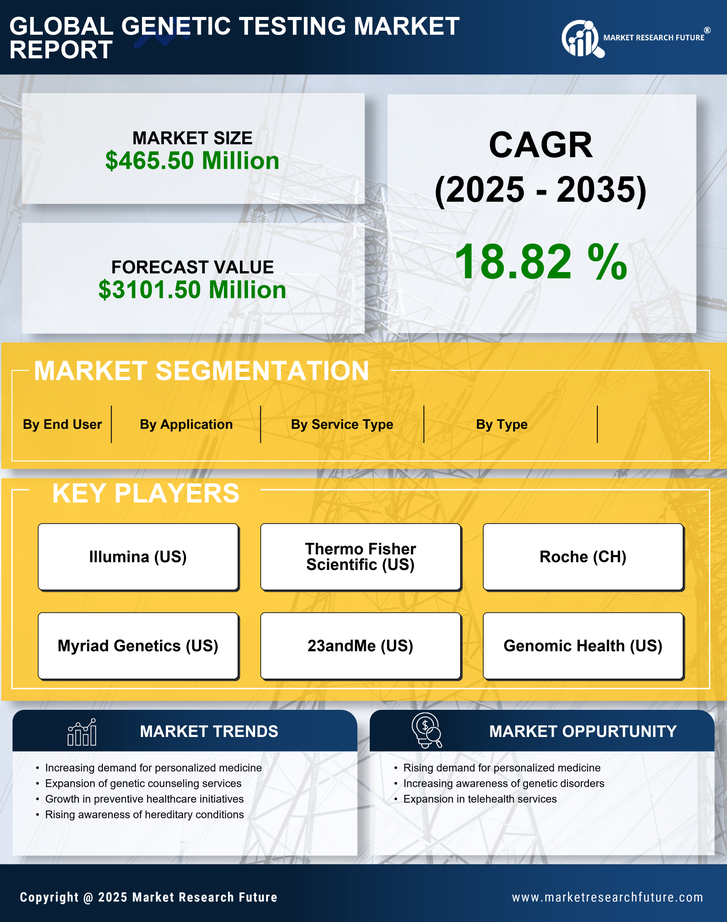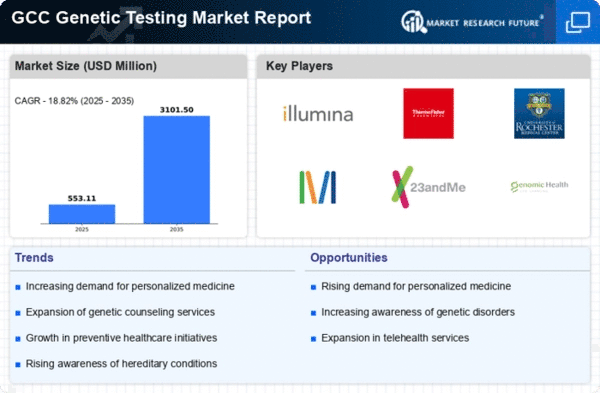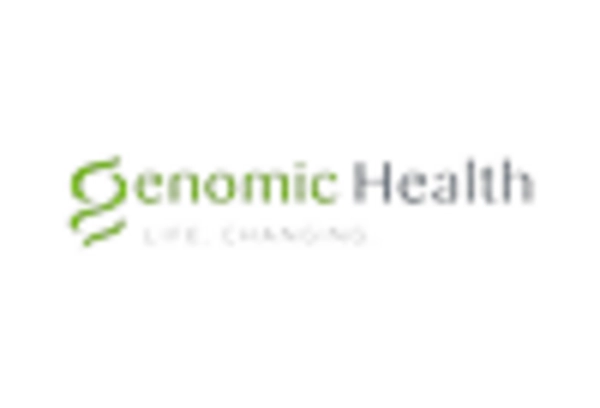Government Initiatives and Support
Government initiatives aimed at improving healthcare infrastructure in the GCC are playing a crucial role in the expansion of the genetic testing market. Various national health programs are being implemented to promote genetic research and testing, which is likely to enhance public access to these services. For instance, funding for genetic research projects and subsidies for testing services are being introduced, which could potentially lower the financial barriers for patients. This support from governmental bodies is expected to stimulate market growth, with projections indicating a potential increase in market size by 15% over the next five years. Such initiatives not only foster innovation but also encourage collaboration between public and private sectors in the genetic testing market.
Growing Demand for Prenatal Testing
The demand for prenatal genetic testing is on the rise in the GCC, significantly impacting the genetic testing market. Expectant parents are increasingly seeking information about potential genetic disorders in their unborn children, leading to a surge in the availability of non-invasive prenatal testing (NIPT) options. This trend is driven by a combination of factors, including advancements in testing technology and a growing emphasis on maternal health. The market for prenatal genetic testing is projected to grow at a rate of 9% annually, reflecting the increasing acceptance of these tests among healthcare providers and patients alike. As awareness of the benefits of early detection continues to spread, This market is likely to see sustained growth in this segment..
Rising Awareness of Genetic Disorders
There is a growing awareness of genetic disorders among the population in the GCC, which is significantly impacting the genetic testing market. Educational campaigns and healthcare initiatives are informing individuals about the importance of genetic testing for early detection and management of hereditary conditions. This heightened awareness is leading to an increase in demand for genetic tests, particularly for conditions such as cystic fibrosis and sickle cell anemia. As a result, the market is expected to witness a growth rate of around 8% annually. Additionally, healthcare professionals are increasingly recommending genetic testing as part of preventive healthcare strategies, further driving the adoption of these services within the genetic testing market.
Increased Focus on Personalized Medicine
The shift towards personalized medicine is significantly influencing the genetic testing market. As healthcare moves away from a one-size-fits-all approach, genetic testing is becoming essential for tailoring treatments to individual patients. This trend is particularly evident in oncology, where genetic tests are used to identify specific mutations that can inform targeted therapies. In the GCC, the market is likely to expand as healthcare providers increasingly adopt personalized treatment plans based on genetic information. The potential for improved patient outcomes and reduced healthcare costs is driving this trend, with estimates suggesting a market growth of approximately 12% in the coming years. Consequently, the genetic testing market is positioned to play a pivotal role in the evolution of healthcare practices.
Technological Advancements in Genetic Testing
The genetic testing market is experiencing a surge due to rapid technological advancements. Innovations such as next-generation sequencing (NGS) and CRISPR technology are enhancing the accuracy and efficiency of genetic tests. These advancements are likely to reduce costs, making genetic testing more accessible to the population. In the GCC, the market is projected to grow at a CAGR of approximately 10% from 2025 to 2030, driven by these technological improvements. Furthermore, the integration of artificial intelligence in data analysis is expected to streamline the testing process, thereby increasing the reliability of results. As a result, healthcare providers are more inclined to incorporate genetic testing into routine diagnostics, further propelling the growth of the genetic testing market.

















